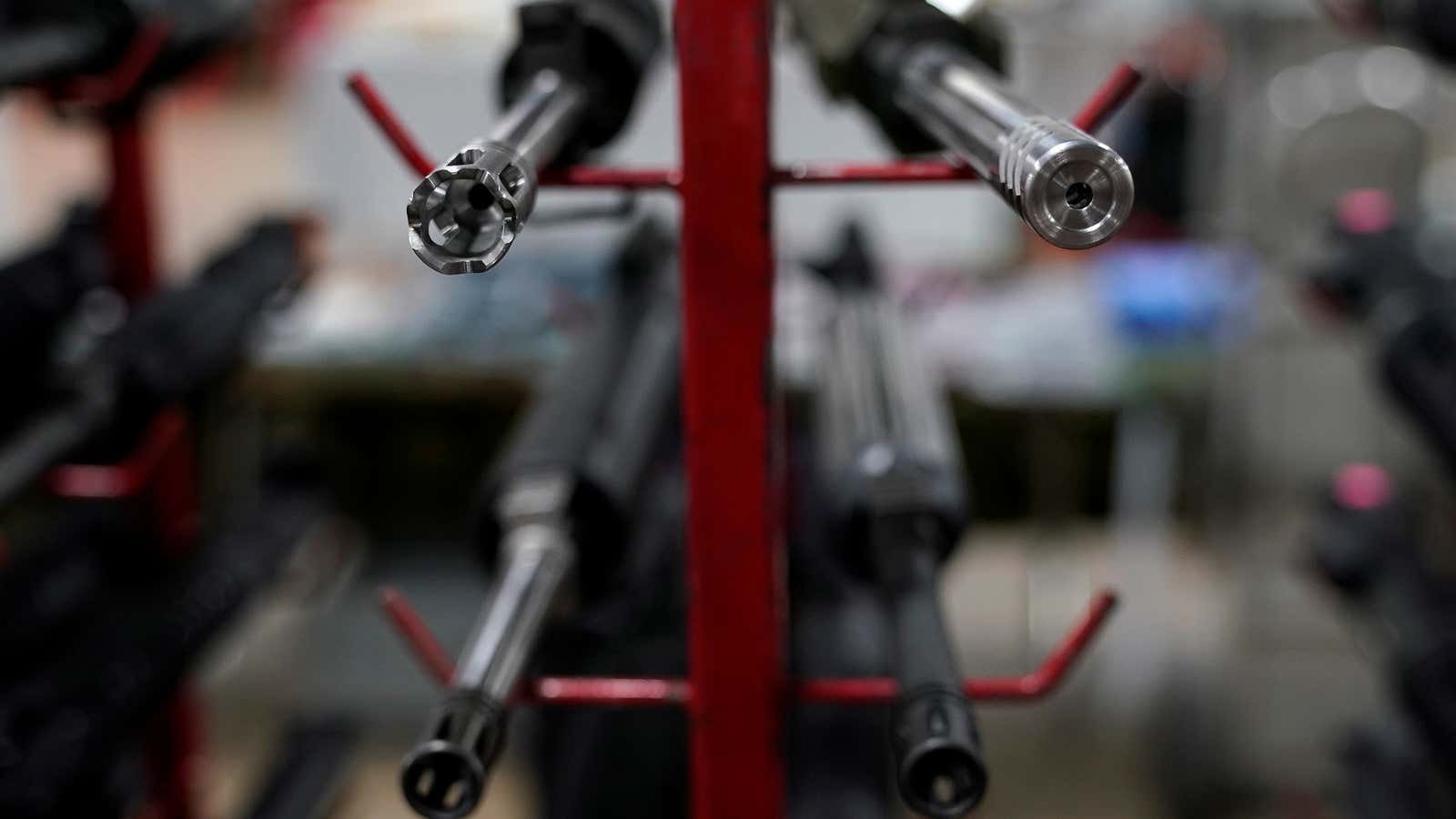Americans are exceptionally more likely to be gunned down in a public place than residents of any other country in the world.
This exceptionalism is a choice, one made each time nothing is done to limit access to military weapons after the latest burst of killing. Increasingly, the exceptionalism is linked to the white nationalist rhetoric embraced by president Donald Trump and the Republican party.
Don’t forget it as you view Trump’s photo op: He and his wife Melania held an orphaned baby whose parents were among the 22 people gunned down in El Paso, Texas. In the photo, Trump is grinning and offering a thumbs-up.
The killer in El Paso, like killers at synagogues in Pittsburgh and Poway, or mosques in Christchurch and Quebec, cited rhetoric mainstreamed by Trump. Everyone knows what Trump and Fox News do when they describe non-white people with words like “infestation” and “vermin” and “invasion,” talk of “sending them back” and “shooting them,” and warn of “murderers” and “rapists.”
We know because we’ve studied genocides, ethnic violence, and hate crimes for decades. This rhetoric gives people permission to act. To call it a dog whistle disrespects canine subtlety.
We also know that many Republicans look the other way, because without white nationalism their political coalition could fall apart. That coalition also needs guns, and the money provided by the gun lobby. Already, the scandal-ridden head of the National Rifle Association is on the phone with the US president, telling him that his voters won’t support background checks on gun owners.
You will hear that gun restrictions are too complicated to enforce, even though history in Australia and South Africa shows it isn’t so.
The shooter in Dayton, Ohio was not apparently motivated by politics. But though he was recognized by many in his life as dangerous and unstable, he was able to buy an AR-15 variant and a 100-round drum magazine over the internet. A year from now, will there be any US federal laws in place to prevent a similar purchase?
I doubt there will be an exception.
This essay was originally published in the weekend edition of the Quartz Daily Brief newsletter. Sign up for it here.
